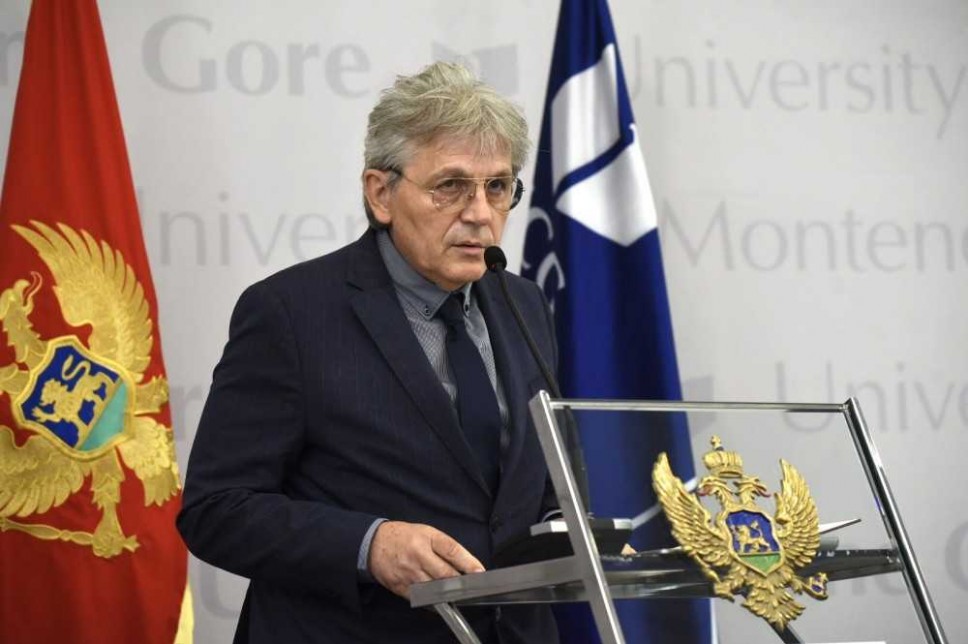Trinaestojulski ustanak održao ime crnogorsko i Crnu Goru učinio prepoznatljivom u Evropi

Direktor Istorijskog instituta Univerziteta Crne Gore Radoslav Raspopović kaže da je 13. jul jedan od onih datuma koji su stvorili i održali ime crnogorsko i Crnu Goru.
„Nesporna je činjenica da je u toku Drugog svjetskog rata ustanak naroda u Crnoj Gori predstavljao istorijski fenomen koji je za porobljenu Evropu i nabujali fašizam predstavljao primjer slobodarskih tradicija, ali i puta kojim se jedino moglo ići. Činjenica da je crnogorski narod smogao snage da 13. jula 1941. započne ustanički otpor i masovni oružani ustanak u vrijeme kada su drugi evropski narodi bili porobljeni, daje ovom događaju obilježje jedinstvene pojave u toku Drugog svjetskog rata“.
Raspopović navodi da su uspjesi postignuti u ustanku ispisali nove slavne stranice u istoriji Crne Gore, utemljene na ljestvici tradicionalnih moralnih vrijednosti i visoko uzdignutoga stava prema nacionalnoj slobodi. Crnogorci su se pročuli u svijetu oružanom borbom za slobodu.
„A borba koju su Crnogorci vodili protiv Osmanskog carstva, podrazumijevala je da u njoj, da bi mogla da uspije, ratuje cio narod. I jedan i drugi element crnogorske tradicije došli su do izražaja u Trinaestojulskom ustanku“, kaže direktor Raspopov ić.
ić.
Prema njegovim riječima, fašističke armije su u to vrijeme bilježile samo pobjede na ogromnom ratištu, uključujući i ono u Sovjetskom Savezu.
„U Evropi, u kojoj je rješavana sudbina čovječanstva nije bilo oružanog otpora nacizmu i fašizmu. Samo su Crnogorci masovno započeli, neravnopravni, oslobodilački, svenarodni rat protiv Musolinijeve Italije, glavnog saveznika Hitlerove Njemačke. Računa se da je u ustanku učestvovalo 32.000 boraca koji su nanijeli ogromne gubitke italijanskom fašističkom okupatoru i stvorili prvu veliku slobodnu teritoriju u okupiranoj Evropi. Uporedo su formirani i prvi organi nove revolucionarne vlasti, koji su u svojim programima sadržali i načela o potrebi da se, pored ostalog, isprave istorijske nepravde koje su postojale u Jugoslovenskoj državi od 1918. godine, u pogledu nacionalne ravnopravnosti naroda“, navodi direktor Raspopović.
Ustanak u Crnoj Gori - prvi svenarodni oružani otpor protiv okupatora u Evropi, kada su fašističke snage bile na vrhuncu svoje moći, bio je moralno ohrabrenje za druge porobljenje narode Evrope. Na to su upućivali ostvareni rezultati, priča direktor Raspopović.
„Za samo nekoliko dana od izbijanja ustanka ustanici su izbacili iz stroja 4. 800 okupatorskih vojnika i oficira i zarobili veliku količinu oružija. Podaci koji se u istorijskoj literaturi navode govore da je od okupatora oduzeto: 4.227 pušaka, 85 mitraljeza, 118 puškomitraljeza, 22 topa I 62 minobacača. Rezultati akcije ustanika bili su takvi da su za nekoliko dana bili uništeni svi garnizoni u Crnoj Gori, sem u Cetinju, Podgorici i Nikšiću“, kaže Raspopović.
Trinaestojulski ustanak, zaključuje on, iako djelo Crnogoraca, ne pripada samo Crnoj Gori. On predstavlja svijetao pečat evropske istorije.
„Zahvaljujući njemu italijanski okupator je iz Albanije povukao šest divizija, koje su mogle biti prebačene na Istočni ili Arapski front. Pitanje je kakav bi bio tok i ishod Drugog svjetskog rata, bez ustanka u Crnoj Gori i borbi drugih jugoslovenskih naroda“, smatra Raspopović.
U istoriji bilo kog evropskog naroda se može nabrojati mnoštvo ”slavnih datuma” koji su označili kraj jedne i početak druge epohe. Raspopović ističe da se ti datumi slave kao prekretnice u opredjeljenju za drugačije sisteme društvenih vrijednosti, opredjeljenju koje mijenja karakter drušvenih odnosa, praveći tako zaokret u njihovom istorijskom trajanju.
“U istoriji crnogorskog naroda takođe postoje brojni datumi koji sežu iz daleke prošlosti ka novijim hronološkim etapama, koji su označavali početak, uslovno rečeno, novog doba. U istorijski bližoj perspektivi oni se mogu prepozanati u vojničkim pobjedama, kao na primjer u onoj, na Martinićima i Krusima 1796. godine, na Grahovcu 1858. godine ili na Vučjem dolu i Fundini u Veljem ratu 1796-1978, u kojom je utemeljena nezavisnost Crne Gore i stvoreni uslovi za njeno međunarodno priznanje na Berlinskom kongresu. Svakako da odluke o međunarodnom priznanju pripadaju redu slavnih datuma iz istorijske prošlosti Crne Gore, kao i trenutak od koga se može računati nova državna i socijalna perspektiva crnogorskog naroda”, navodi Raspopović.
Kongres je, ističe on, definitivno utemeljio modernu svijest o pripadnosti državi, formirao istorijsko pamćenje naroda usko vezano sa vrijednosnim i identitetskim sadržajima društva. Na liniji takvih istorijskih perspektiva bio je i Trinaestojulski ustanak crnogorskog naroda.
Medijske objave:
https://m.cdm.me/drustvo/raspopovic-trinaestojulski-ustanak-odrzao-ime-crnogorsko-i-crnu-goru/
https://www.portalanalitika.me/clanak/raspopovic-trinaestojulski-ustanak-odrzao-ime-crnogorsko
https://www.mladiniksica.me/trinaestojulski-ustanak-crnu-goru-ucinio-prepoznatljivom-u-evropi/
http://www.rtcg.me/vijesti/drustvo/285502/trinestojulski-ustanak-slavna-stranica-u-istoriji-cg.html

